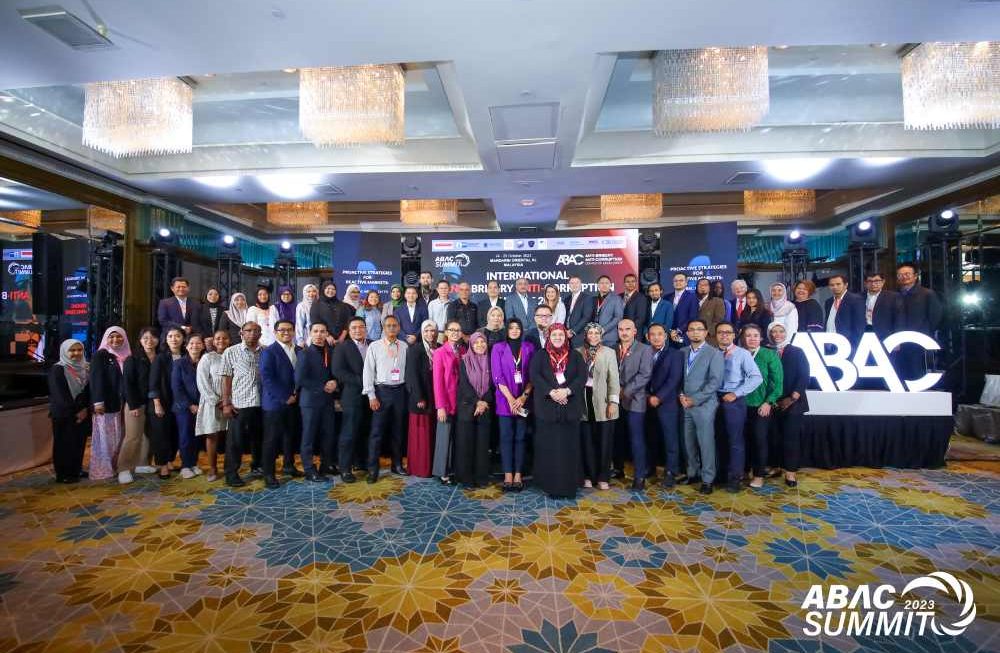“A Guide for Business Leaders and Compliance Officers”
Introduction
Bribery and corruption threaten any organisation’s integrity, reputation, and performance. They can undermine the rule of law, distort markets, erode trust, and create unfair competition. They can expose the organisation and its stakeholders to legal, financial, and reputational risks.
Therefore, organisations must implement a comprehensive anti-bribery anti-corruption (ABAC) strategy that covers all aspects of their operations, from governance and culture to policies and procedures. A robust ABAC strategy can help organisations prevent, detect, and respond to bribery and corruption risks and demonstrate their commitment to ethical business conduct and social responsibility.
One of the best ways to implement an effective ABAC strategy is to adopt the ISO 37001 Anti-Bribery Management System (ABMS) standard. This voluntary international standard provides a framework and guidance for organisations to establish, implement, maintain, and improve an ABMS. The ISO 37001 ABMS can help organisations enhance their internal controls, monitor compliance performance, and reduce liability exposure.
Benefits of Implementing a Comprehensive ABAC Strategy
Implementing a comprehensive ABAC strategy can bring many benefits to an organisation, such as:
- Improving its ethical culture and values can foster employee engagement, loyalty, and productivity.
- Enhancing its reputation and brand image, which can attract and retain customers, investors, partners, and suppliers.
- Reducing operational costs and risks can improve its profitability and sustainability.
- Increasing its competitive advantage and market access can enable its growth and innovation.
- Complying with its legal obligations and expectations, which can avoid sanctions, penalties, and litigation.
Benefits of Adopting the ISO 37001 ABMS Standard
Adopting the ISO 37001 ABMS standard can help an organisation implement a comprehensive ABAC strategy systematically and consistently. Some of the benefits of adopting the ISO 37001 ABMS standard are:
- It is based on ABAC’s best practices and principles, such as top management leadership, risk assessment, due diligence, training, reporting, investigation, and continuous improvement.
- It is aligned with other international standards and guidelines, such as the ISO 37301 Compliance Management System, the ISO 26000 Social Responsibility, the OECD Anti-Bribery Convention, the UN Convention Against Corruption, and the UN Global Compact.
- It applies to any type and size of organisation, regardless of sector, location, or activity.
- It is flexible and adaptable to each organisation’s specific needs and context.
- It is auditable and certifiable by an independent third party, which can provide assurance and credibility to the organisation and its stakeholders.
Conclusion
Bribery and corruption are illegal, unethical, and detrimental to any organisation’s long-term success and sustainability. Therefore, organisations must implement a comprehensive ABAC strategy that can help them prevent, detect, and respond to bribery and corruption risks and demonstrate their commitment to ethical business conduct and social responsibility.
The ISO 37001 ABMS standard is a valuable tool and resource for organisations implementing an effective ABAC strategy. By adopting the ISO 37001 ABMS standard, organisations can benefit from a framework and guidance that can help them enhance their internal controls, monitor their compliance performance, and reduce their liability exposure.
Organisations interested in adopting the ISO 37001 ABMS standard should consult with a qualified and experienced ABMS consultant or auditor who can assist them in planning, implementing, evaluating, and improving their ABMS.
How will education and specialist training, especially for enforcement agencies, contribute to the professionalism of personnel in key enforcement agencies?
One of the key elements of an effective ABAC strategy is education and specialist training, especially for enforcement agencies, such as the police, prosecutors, and judges. Education and specialist training can contribute to the professionalism of personnel in key enforcement agencies in several ways:
- It can raise awareness and understanding of bribery and corruption’s legal, ethical, and social implications and the importance of preventing and combating them.
- It can equip personnel with the necessary knowledge, skills, and tools to identify, investigate, prosecute, and decide bribery and corruption cases through relevant laws and regulations, as well as the best practices and standards, such as the ISO 37001 ABMS standard.
- It can foster a culture of integrity, transparency, and accountability within the enforcement agencies and enhance their public trust and reputation.
- It can facilitate cooperation and coordination among different enforcement agencies and between the public and private sectors in addressing bribery and corruption issues and challenges.
Therefore, organisations should invest in education and specialist training for their personnel in key enforcement agencies as part of their ABAC strategy and ensure that they are regularly updated and evaluated for their effectiveness and impact.
One example of how adequate procedures can make a difference in anti-bribery and anti-corruption (ABAC) efforts is the case of SIEMENS. This global engineering company faced a massive corruption scandal in 2006. The company was accused of paying more than $1.4 billion in bribes to government officials and intermediaries in various countries to secure contracts and gain competitive advantages. As a result, Siemens had to pay more than $2.6 billion in fines and settlements to authorities in the US, Germany, and other jurisdictions.
However, Siemens also embarked on a comprehensive and motivated reform program to overhaul its culture, governance, and compliance systems. The company hired a new CEO and chief compliance officer, who implemented a zero-tolerance policy for bribery and corruption and terminated or disciplined thousands of employees involved in misconduct. It strengthened the internal controls and monitoring mechanisms. Siemens also invested heavily in education and training for its employees, suppliers, and partners, establishing a global network of compliance officers and experts. The company cooperated fully with the investigations and disclosed its findings to the authorities.
As a result of these measures, Siemens restored its reputation and credibility and regained the trust of its customers, shareholders, and regulators. The company also improved its operational efficiency and profitability, eliminating the costs and risks associated with corruption. Siemens became a role model and a leader in ABAC’s best practices and received recognition and praise from various stakeholders, including the World Bank, Transparency International, and the US Department of Justice.
- Adequate procedures should be aligned with the organisation’s vision, mission, and values and reflect a genuine commitment to ethical conduct and social responsibility.
- Adequate procedures should be designed and implemented based on a thorough and ongoing risk assessment tailored to the organisation’s specific context, challenges, and operating environment.
- Adequate procedures should involve the leadership and participation of all levels and functions of the organisation and foster a culture of integrity, transparency, and accountability.
- Adequate procedures should be regularly reviewed and updated to ensure their effectiveness and relevance and to incorporate feedback and learning from internal and external sources.
- Adequate procedures should be supported by adequate resources, incentives, and sanctions and communicated and enforced consistently and fairly across the organisation and its business relationships.
Certainly! Here’s a message emphasising the importance of integrity that can be shared with the public:
Adopting Integrity: A Call to Action
In a world where values collide, and choices become complex, integrity is our solid extent. It exceeds simple honesty; it symbolises the very essence of our character. Let us reflect on what integrity truly means:
1. Honesty and Moral Principles:
Integrity is the quality of being honest, even when no one is watching. It’s about adhering to strong moral principles and refusing to compromise them for convenience or gain.
2. Completeness and Wholeness:
Just as a building’s architectural integrity ensures its stability, our personal integrity keeps us whole. It’s the commitment to remain undivided and true to ourselves and to others.
3. Consistency in Actions:
Integrity isn’t a fleeting virtue. It’s the steadfastness to do what’s right consistently, whether in public or behind closed doors.
4. Trust and Unity:
When integrity prevails, trust flourishes. It unites us, bridging gaps and fostering a sense of community
Examples of Integrity in Everyday Life:
- Return the extra change you find in a vending machine.
- Keep your promises, even if it requires extra effort.
- Refrain from gossiping or betraying a friend’s trust.
- Admit your mistakes and learn from them.
- Preserve artistic or professional standards, even when tempted by shortcuts.
Integrity in the Workplace:
- Adhere to company policies and procedures.
- Own up to mistakes and work together as a team.
- Refuse unethical requests, even if it means seeking a better path elsewhere.
Remember, integrity isn’t a luxury; it’s our collective responsibility. Let’s weave it into the fabric of our lives, creating a world where honesty, unity, and completeness prevail.
CEO Spotlight: Mr. Zafar Anjum Shares Insights on “Empowering Your Anti-Bribery Anti-Corruption Policies”
In a recent engaging session, our esteemed Group CEO, Mr. Zafar Anjum, took center stage on the MACC radio talk show. The event, held on 28th February 2024, provided a unique platform for Mr. Anjum to delve into the critical topic of “Empowering Your Anti-Bribery Anti-Corruption Policies.”
As a highly respected figure in the field of corporate governance and compliance, Mr. Anjum’s participation in the talk show was eagerly anticipated by industry professionals and stakeholders alike. Armed with his extensive expertise and wealth of experience, he delivered invaluable insights and perspectives on combating bribery and corruption within organizations.
During the session, Mr. Zafar Anjum emphasized the importance of robust anti-bribery and anti-corruption measures in today’s business landscape. He shed light on innovative strategies and best practices for organizations to strengthen their policies and safeguard against unethical practices.
One of the key takeaways from Mr. Zafar Anjum’s discussion was the need for proactive and preventive approaches to tackle bribery and corruption effectively. He emphasized the role of leadership in driving a culture of integrity and compliance throughout the organization.
For those who missed the live session, fret not! We’re excited to share the recording of Mr. Zafar Anjum’s insightful conversation on the MACC radio talk show. Tune in to the video below to gain valuable insights and learn from the expertise of our visionary leader.
Don’t miss this golden opportunity to glean wisdom from Mr. Zafar Anjum and empower your organization’s anti-bribery and anti-corruption efforts.




